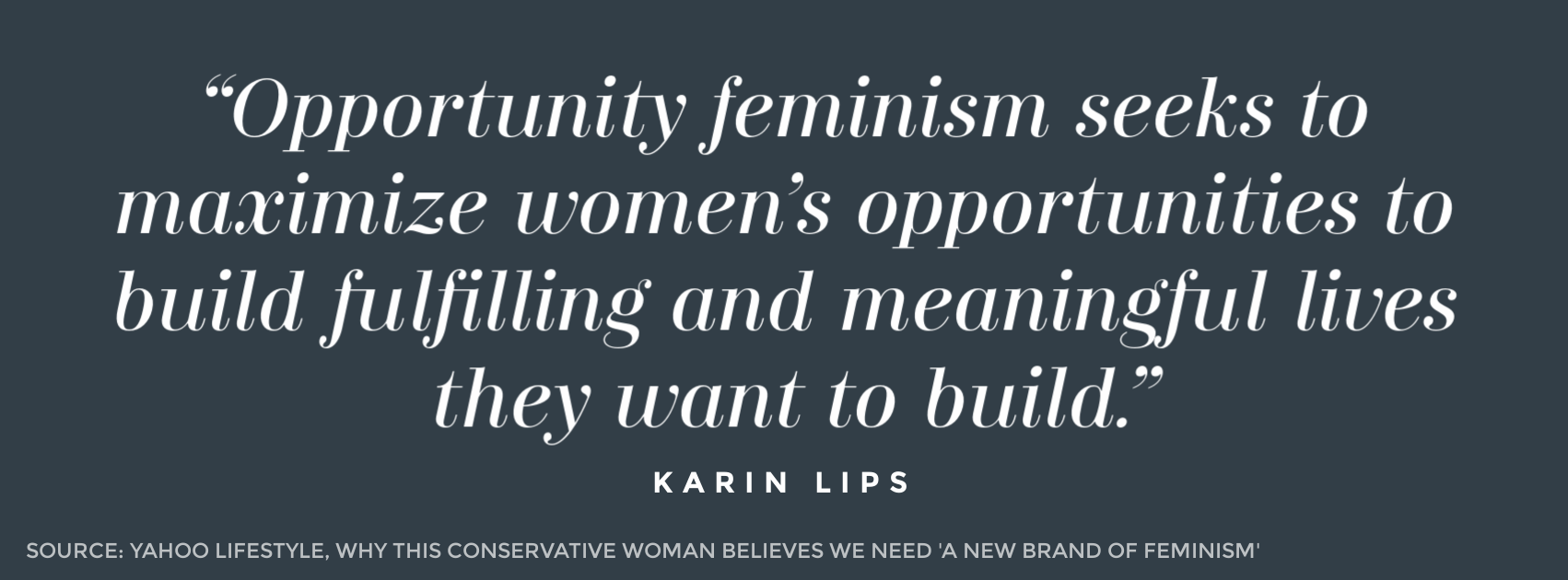Why I Won’t Be Striking On March 8
This article originally appeared in Forbes.
Expect to see fewer women in the workplace on Wednesday. The Women’s March, the group that organized the January 21 protests, has called for a national boycott of “paid and unpaid labor.” Women who don’t strike are encouraged to wear red. Participants are told to avoid shopping, except for small businesses owned by women or minorities. Organizers are billing this effort as, “A Day Without A Woman.”
I am one of the millions of women who won’t be striking, or wearing red for that matter.
The Women’s March claims that its goal is to send a message to the new administration that “women’s rights are human rights.” But the group’s real mission is to advance a progressive policy agenda.
January’s march was full of former presidential nominee Hillary Clinton supporters who were disappointed by the election results. A SurveyMonkey national poll conducted January 26 through 30 found that 85 percent of marchers identify as or lean Democrat and 72 percent are self-described liberals. A large majority of marchers voted for Clinton—79 percent said they voted for Clinton, 8 percent said they voted for Jill Stein and 5 percent said they didn’t vote. At most, then, 8 percent of marchers voted for President Donald Trump.
Throughout the presidential election, many Trump voters spoke out against his awful comments related to women. According to NBC exit polling data, 73 percent of all female voters said they are bothered “some” or “a lot” by Trump’s “reported treatment of women.” Yet Trump won 42 percent of women.
If this really was a march in support of the dignity of all women, it would have included much more political diversity, specifically those women who voted for Trump despite his comments.
The Women’s March movement is less about supporting all women and more about advocating for progressive policy positions on a wide variety of issues, from immigration to the environment. Pro-life women, for example, are not welcome. In January, the organizers of the Women’s March revoked partnership with the New Wave Feminists because the group is pro-life. The Women’s March official statement read, “The Women’s March’s platform is pro-choice and that has been our stance from day one….The anti-choice organization in question is not a partner of the Women’s March on Washington. We apologize for this error.”
Feminists proudly spoke up in favor of kicking this pro-life group out. Roxane Gay, author of the New York Times bestselling Bad Feminist, tweeted:
Intersectional feminism does not include a pro-life agenda. That’s not how it works! The right to choose is a fundamental part of feminism.
The Women’s March effort, then, excludes the 40 percent of U.S. women who believe abortion should be illegal in all or most cases, according to a recent Pew Research Centerstudy.
Even the roots of International Women’s Day, which is the day the organizers picked to hold the “A Day Without A Woman” strike, are Leftist in nature. The first National Woman’s Day, which became International Women’s Day, was organized in 1909 by the Socialist Party of America in honor of the 1908 garment workers’ strike.
Striking from the workplace and society on Wednesday won’t advance women.
If participants in the Women’s March are truly concerned about being behind in the workplace, they could take concrete actions that would immediately be more productive for women. Marchers could mentor junior female colleagues, giving career advice. They could ask to meet with a boss to discuss ways to take on more responsibility and in turn, earn more money. Or they could work an extra 30 minutes. According to the 2015 American Time Use Survey by the U.S. Bureau of Labor Statistics, men worked longer hours than women. Hours worked is certainly a factor considered in pay decisions.
At the very least, dissatisfied women should think about how their participation in the strike will impact the next generation of women. The Superintendent of Chapel Hill-Carrboro schools announced that their schools would be closed on March 8 as a result of the strike.
While organized under the banner of a broad “Women’s March” to benefit all women, it is more accurately a progressive women’s effort that excludes millions of women. So don’t feel bad about doing work on Wednesday.



